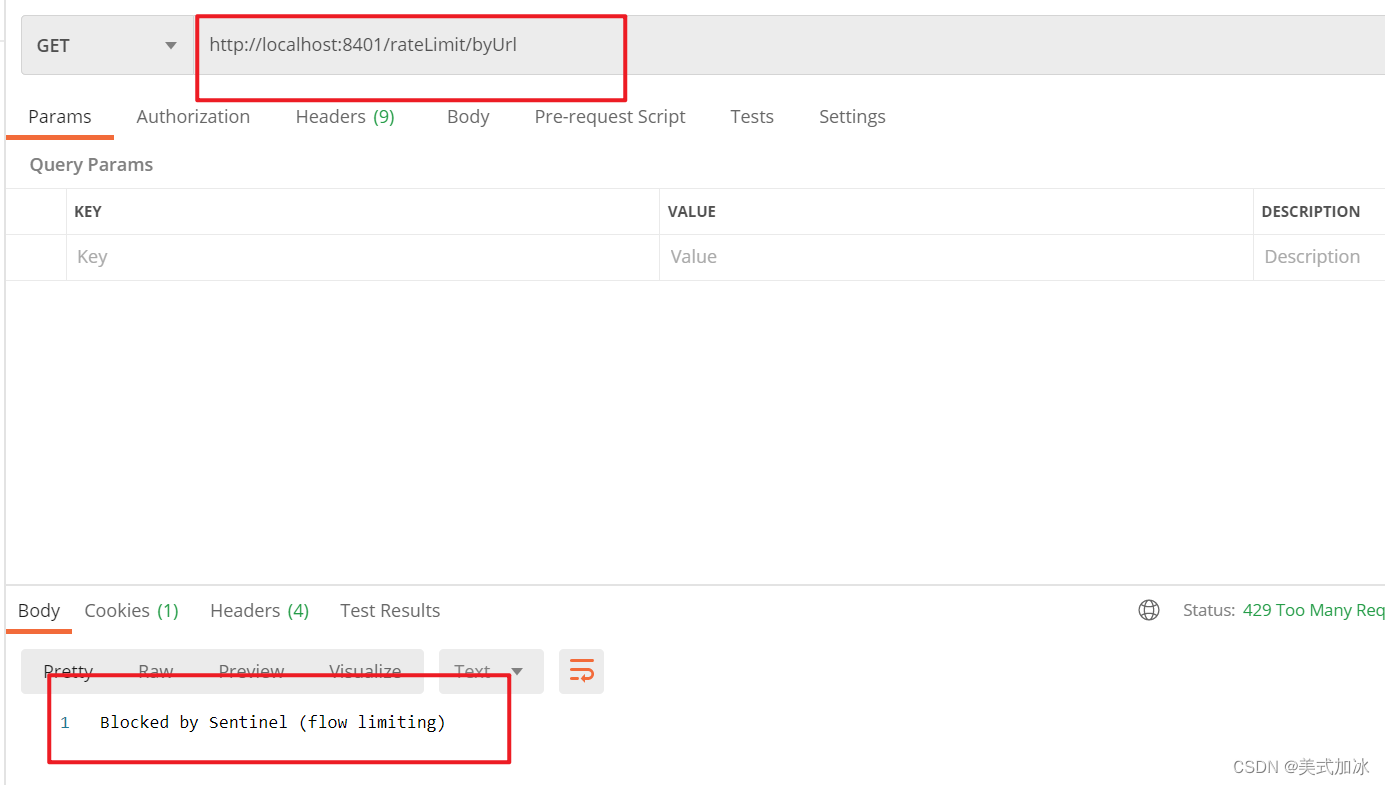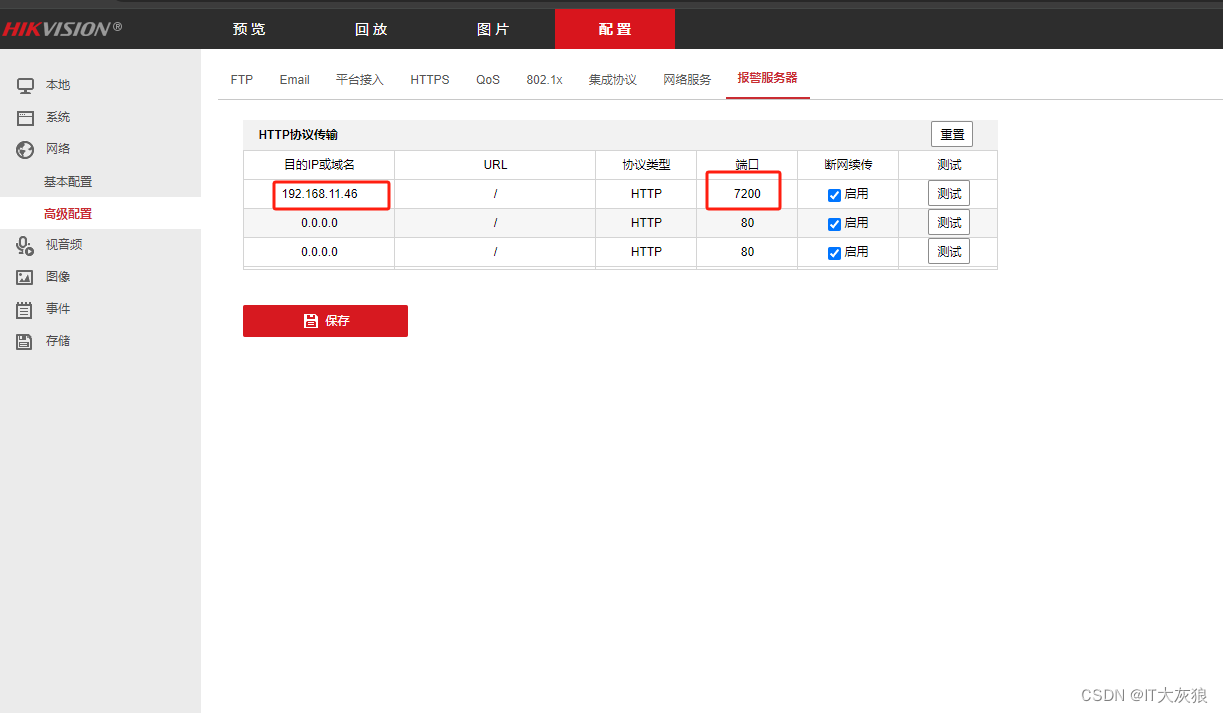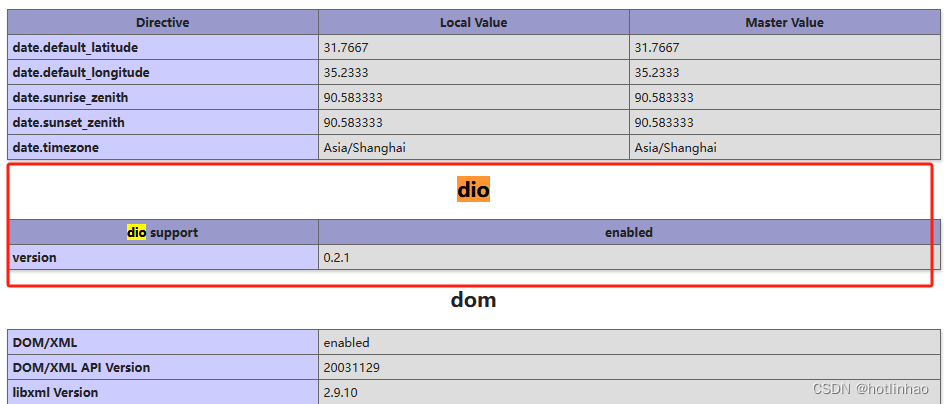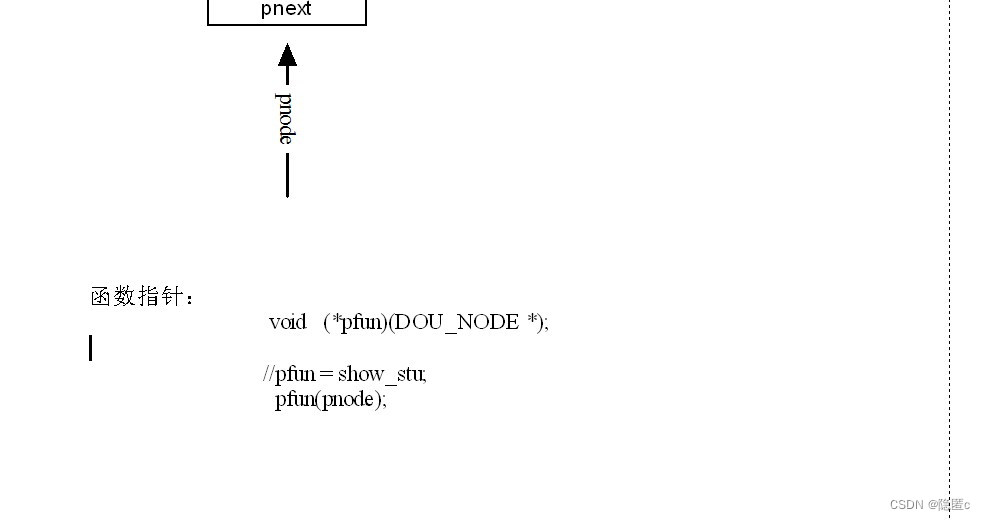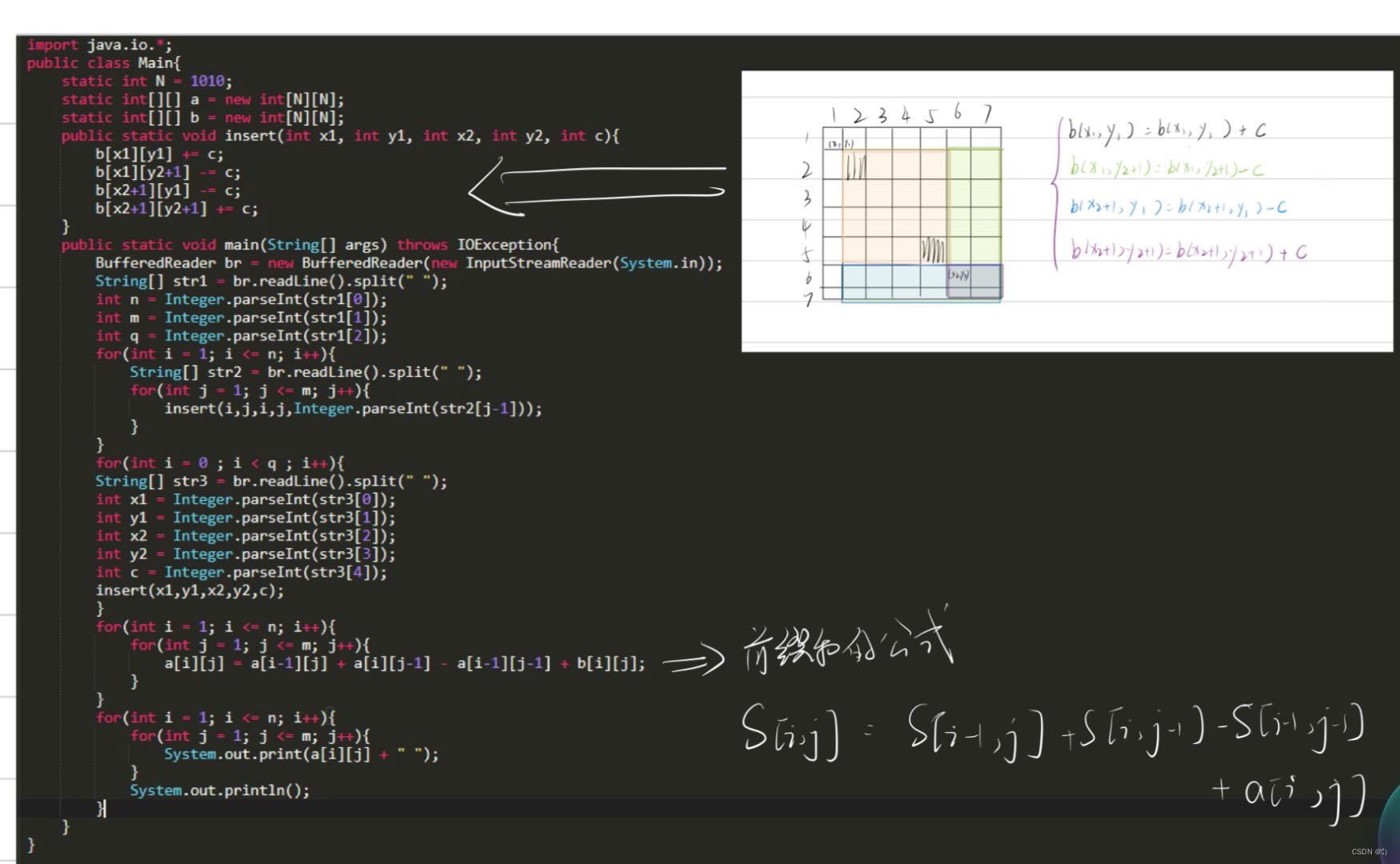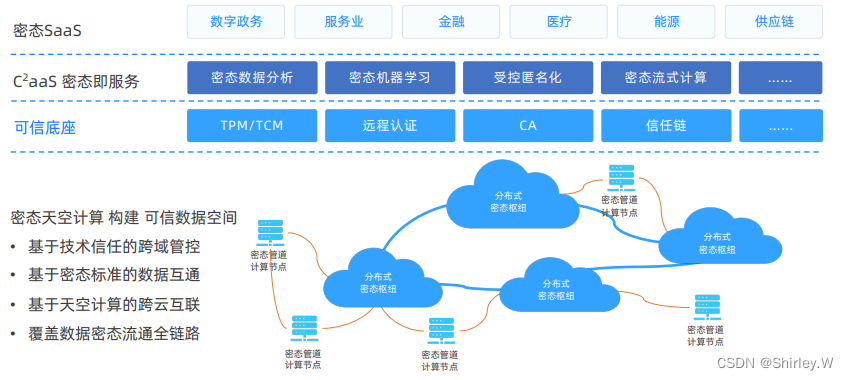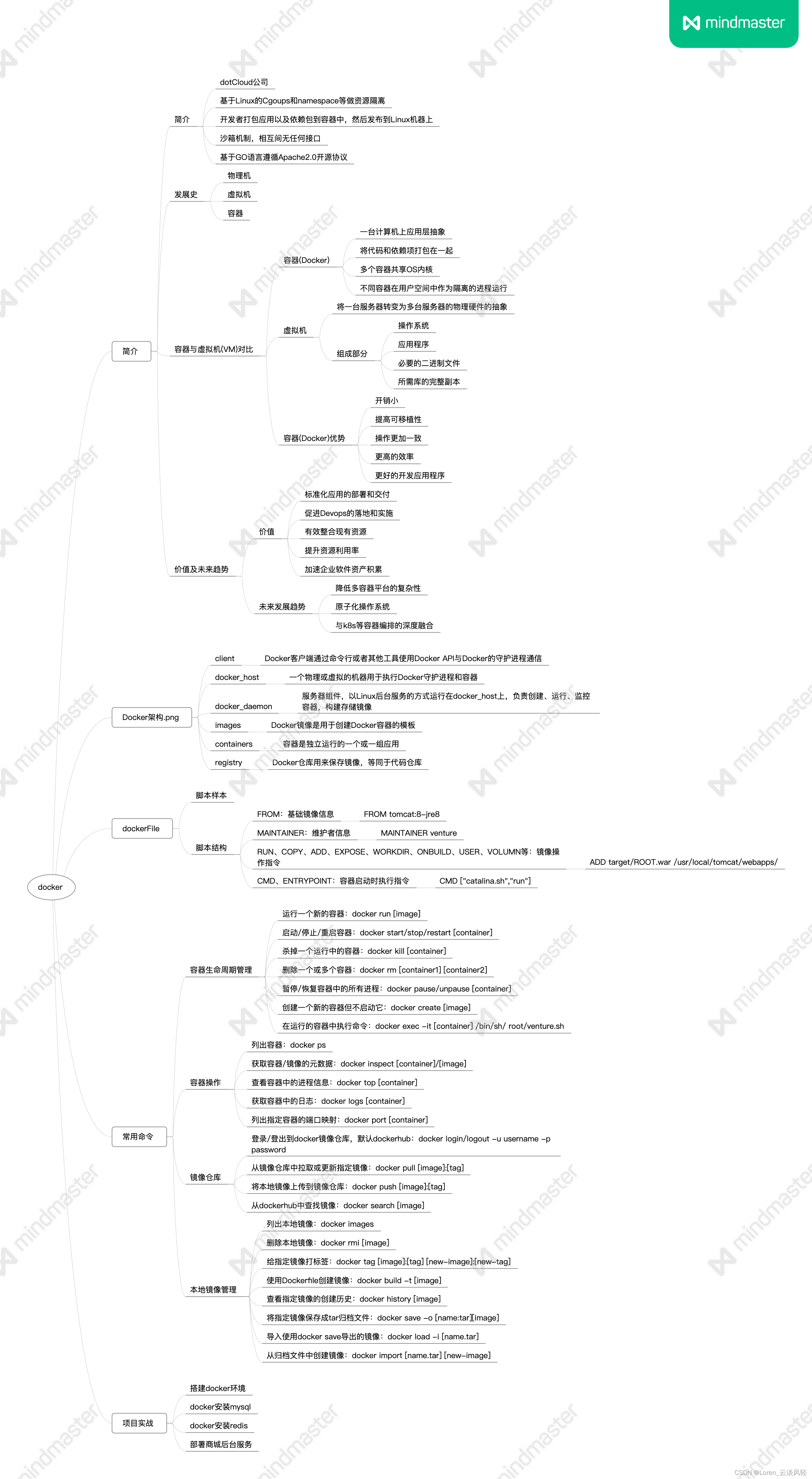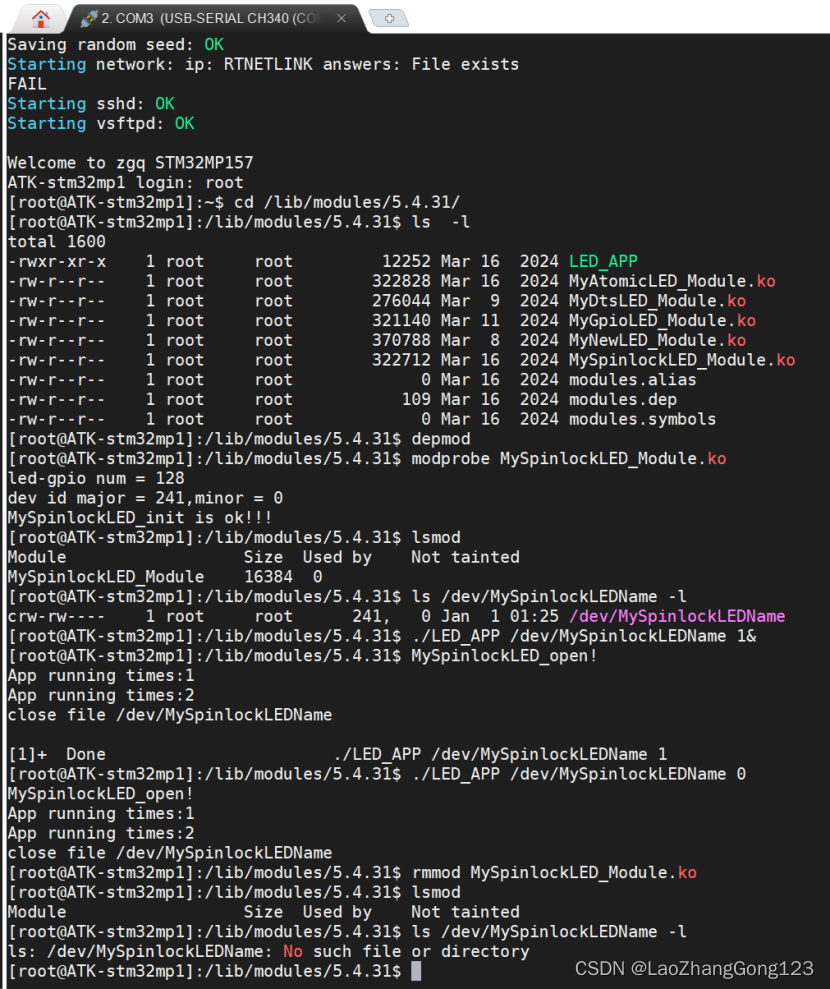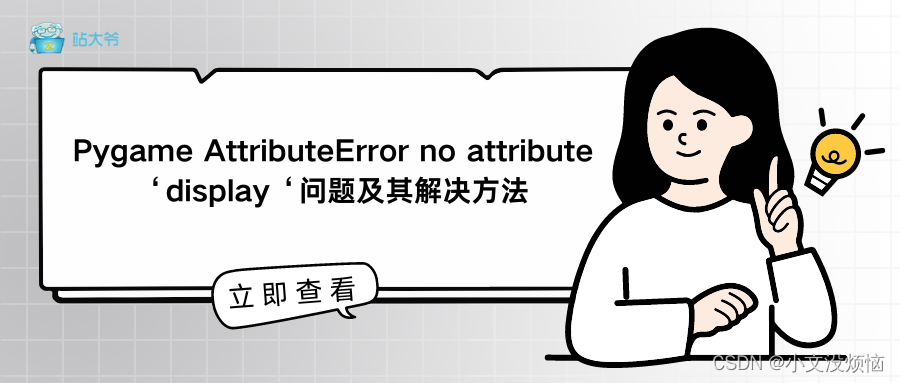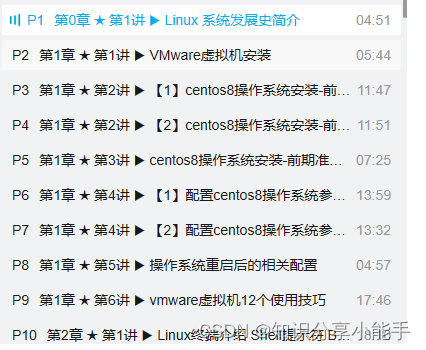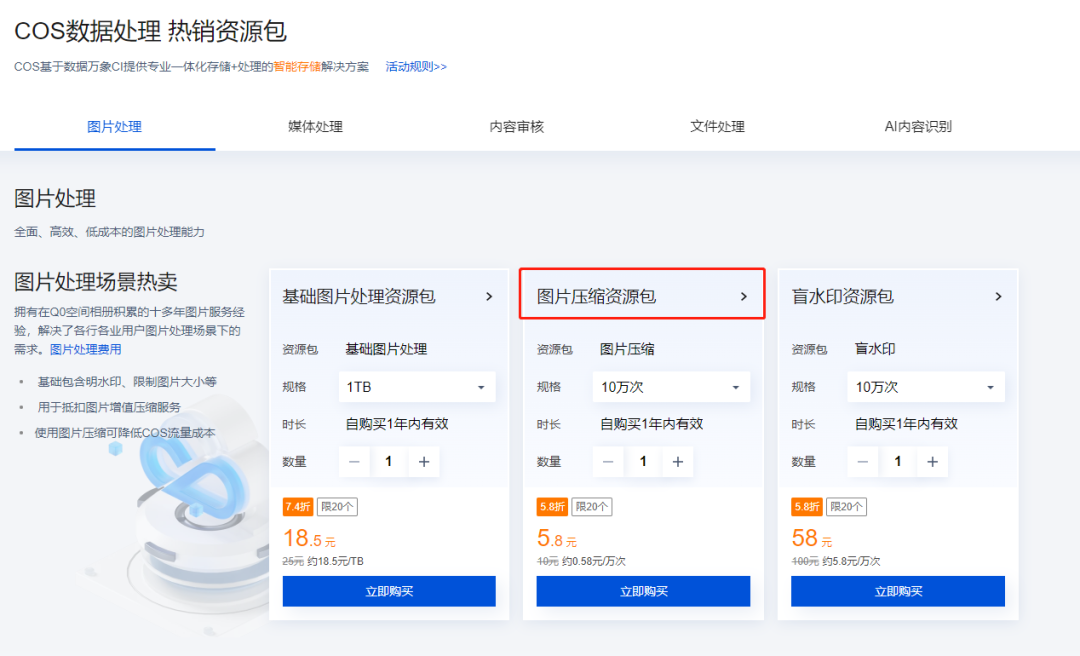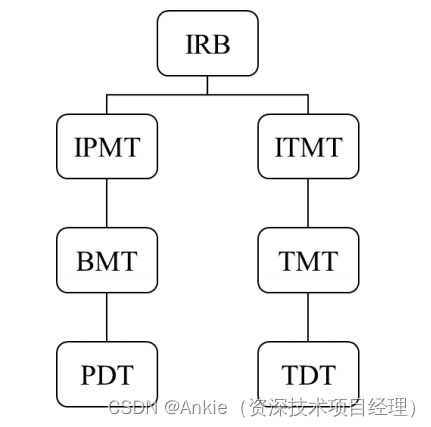文章目录
- 一、问题描述
- 二、实现思路
- 三、实现步骤
- 四、断点实操
- 五、代码演示
一、问题描述
我们已经完成了后台系统的员工管理功能和菜品分类功能的开发,在新增员工或者新增菜品分类时需要设置创建时间、创建人、修改时间、修改人等字段,在编辑员工或者编辑菜品分类时需要设置修改时间、修改人等字段。这些字段属于公共字段,也就是也就是在我们的系统中很多表中都会有这些字段,如下:
| 序号 | 字段名 | 含义 | 数据类型 |
|---|---|---|---|
| 1 | create_time | 创建时间 | datetime |
| 2 | create_user | 创建人id | bigint |
| 3 | update_time | 修改时间 | datetime |
| 4 | update_user | 修改人id | bigint |
而针对于这些字段,我们的赋值方式为:
1). 在新增数据时, 将createTime、updateTime 设置为当前时间, createUser、updateUser设置为当前登录用户ID。
2). 在更新数据时, 将updateTime 设置为当前时间, updateUser设置为当前登录用户ID。
如果都按照上述的操作方式来处理这些公共字段, 需要在每一个业务方法中进行操作, 编码相对冗余、繁琐,那能不能对于这些公共字段在某个地方统一处理,来简化开发呢?
答案是可以的,我们使用AOP切面编程,实现功能增强,来完成公共字段自动填充功能。
二、实现思路
在实现公共字段自动填充,也就是在插入或者更新的时候为指定字段赋予指定的值,使用它的好处就是可以统一对这些字段进行处理,避免了重复代码。在上述的问题分析中,我们提到有四个公共字段,需要在新增/更新中进行赋值操作, 具体情况如下:
| 序号 | 字段名 | 含义 | 数据类型 | 操作类型 |
|---|---|---|---|---|
| 1 | create_time | 创建时间 | datetime | insert |
| 2 | create_user | 创建人id | bigint | insert |
| 3 | update_time | 修改时间 | datetime | insert、update |
| 4 | update_user | 修改人id | bigint | insert、update |
三、实现步骤
1、自定义注解 AutoFill,用于标识需要进行公共字段自动填充的方法
2、自定义切面类 AutoFillAspect,统一拦截加入了 AutoFill 注解的方法,通过反射为公共字段赋值
3、在 Mapper 的方法上加入 AutoFill 注解
四、断点实操
我们接下来debug一下,先看看update更新数据的情况:
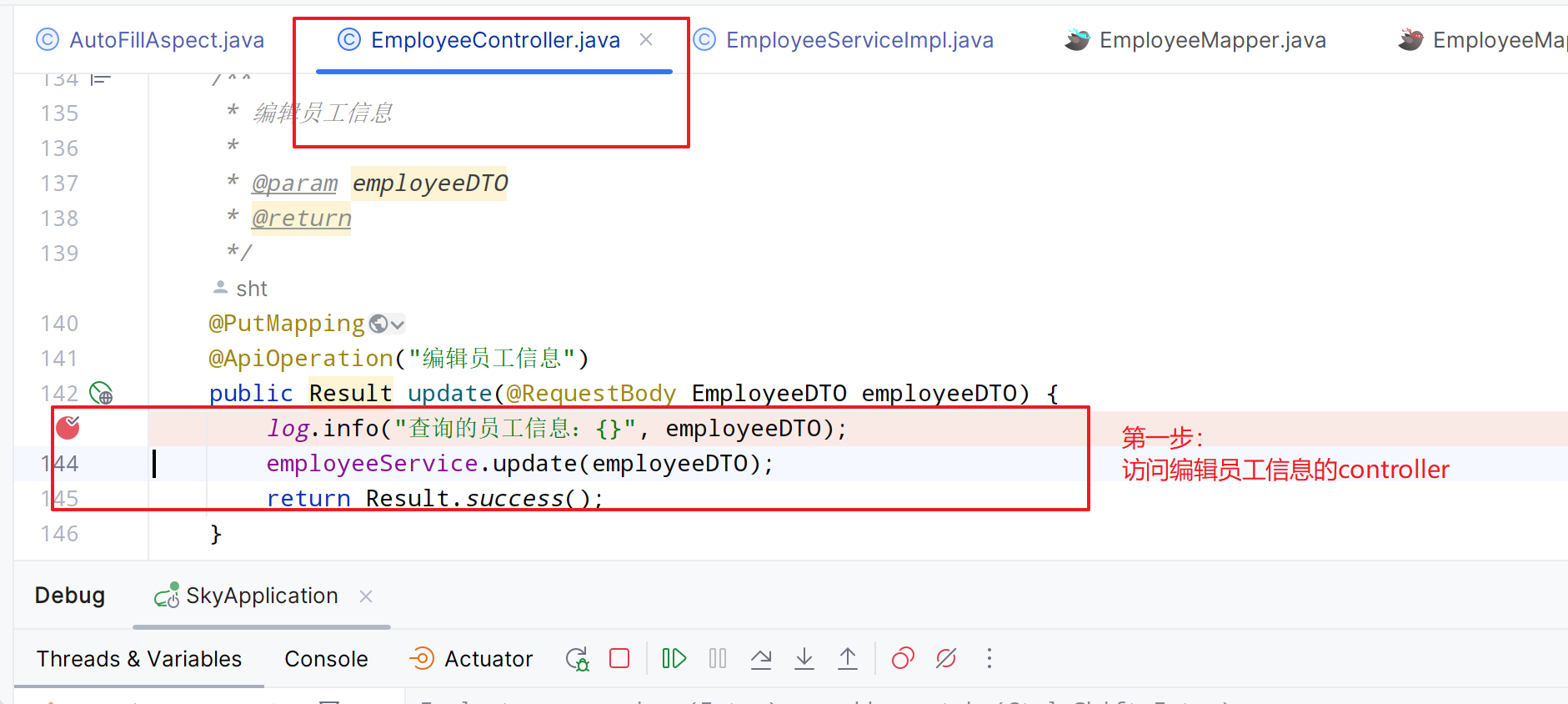
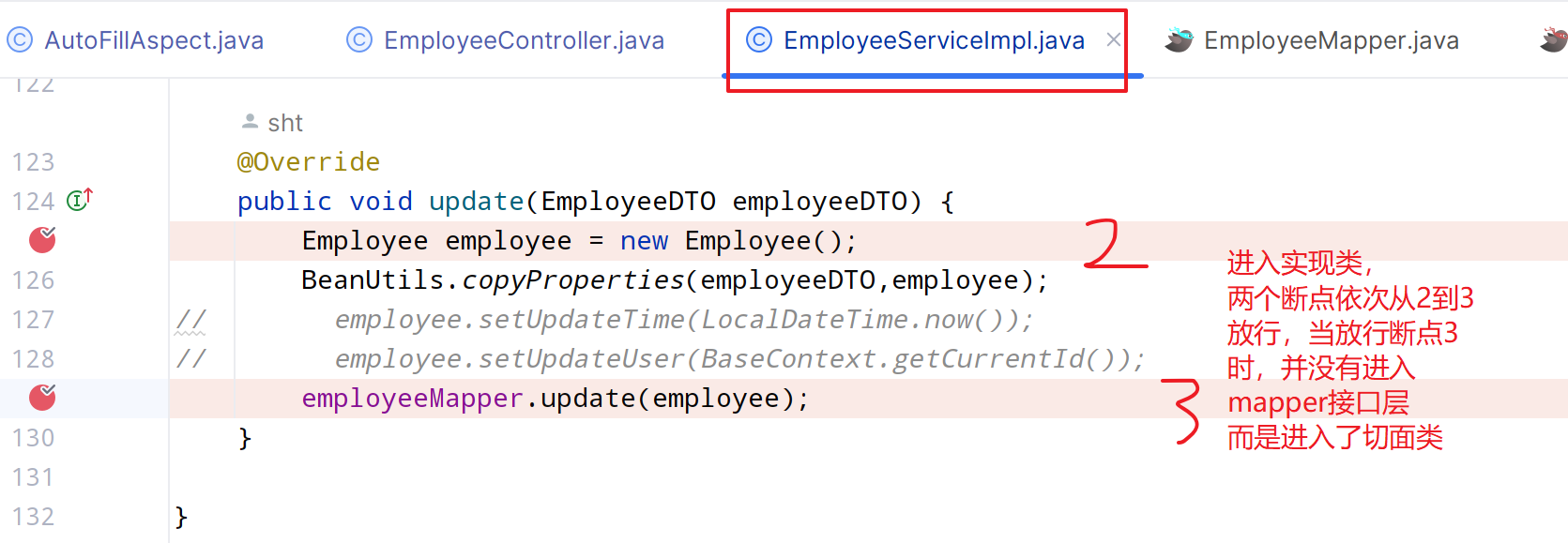
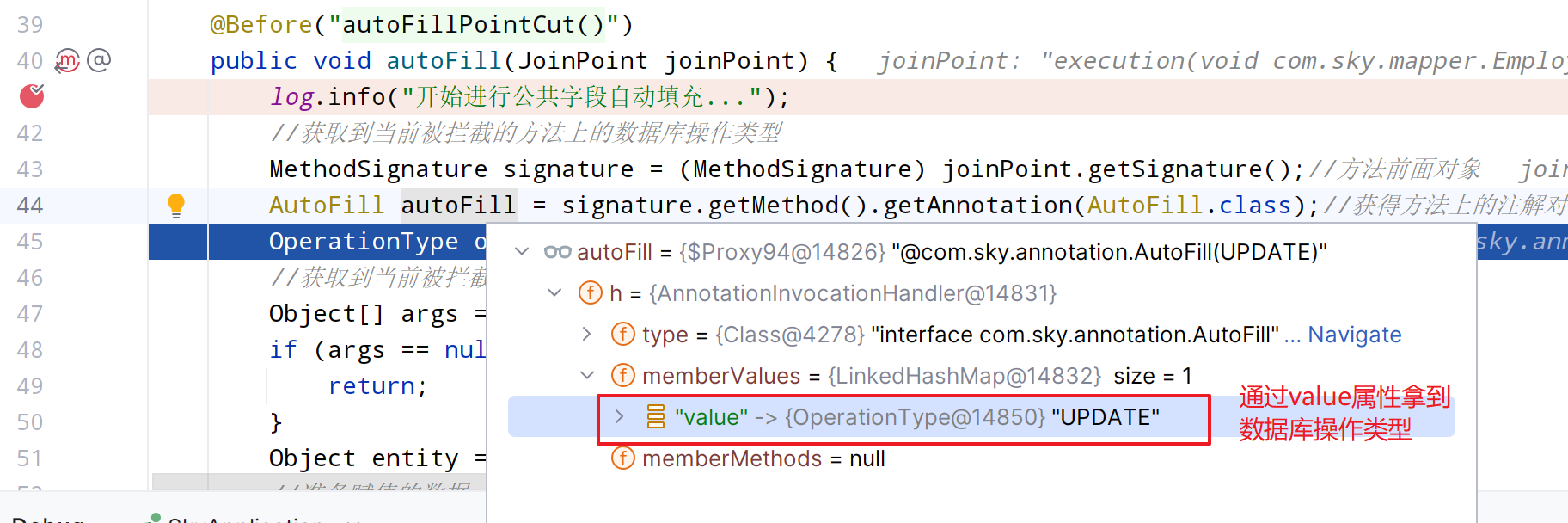


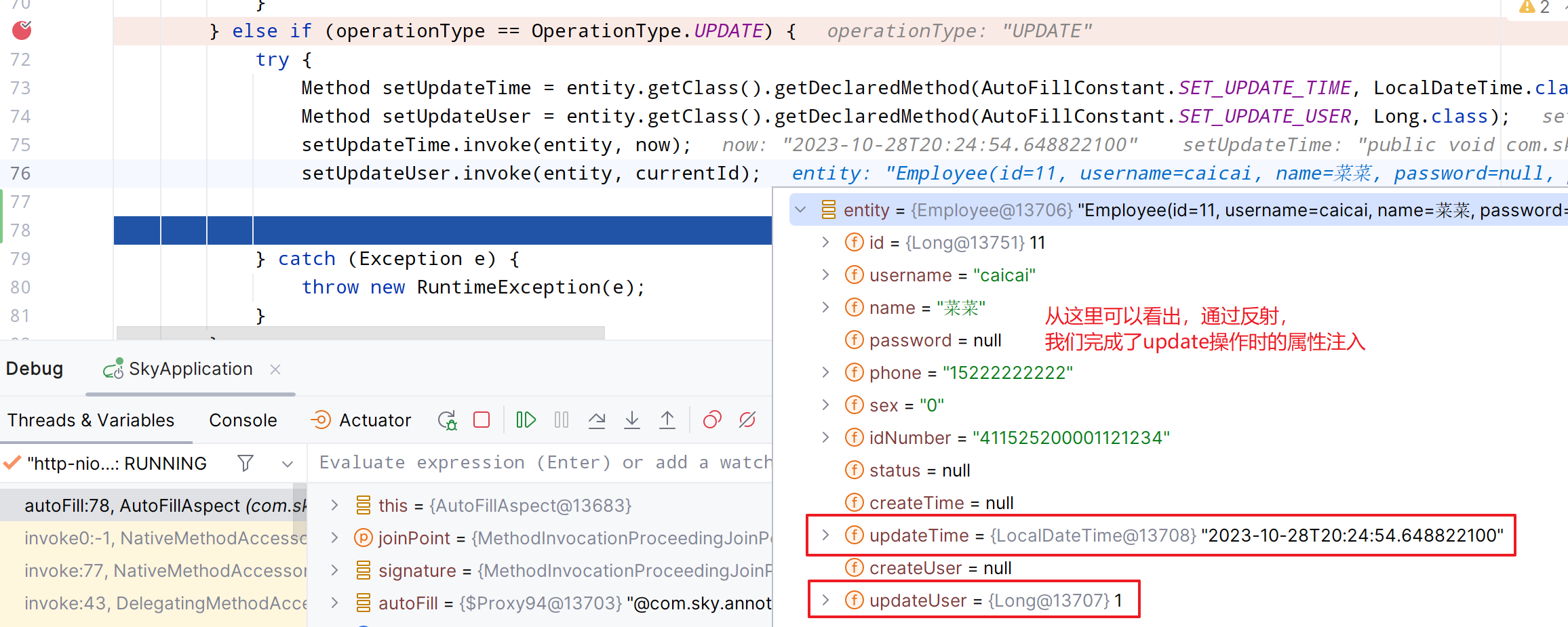
最后来看看新增员工时的情况:
首先来到controller类:

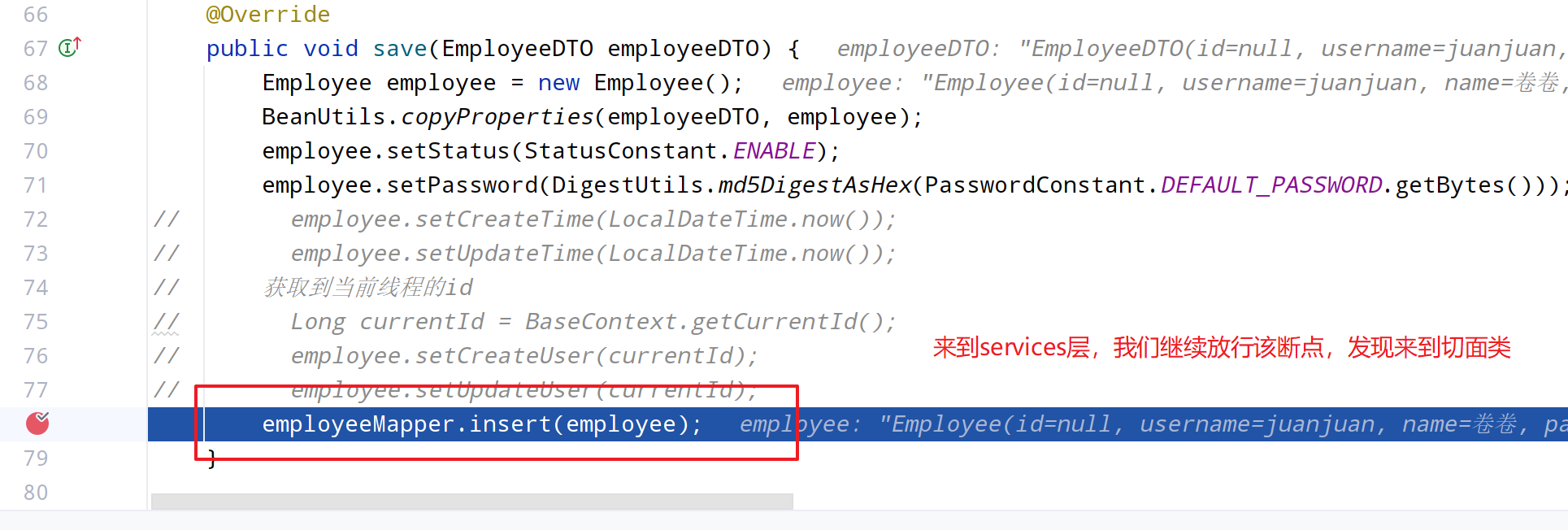
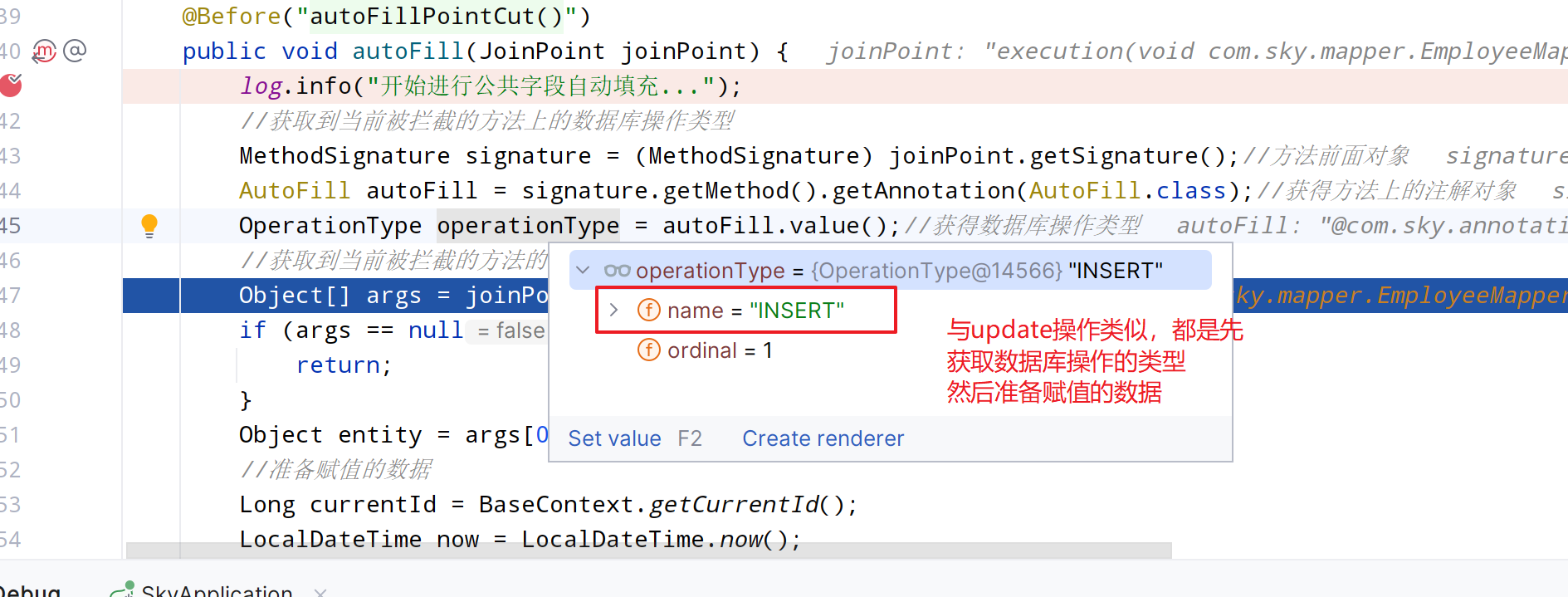
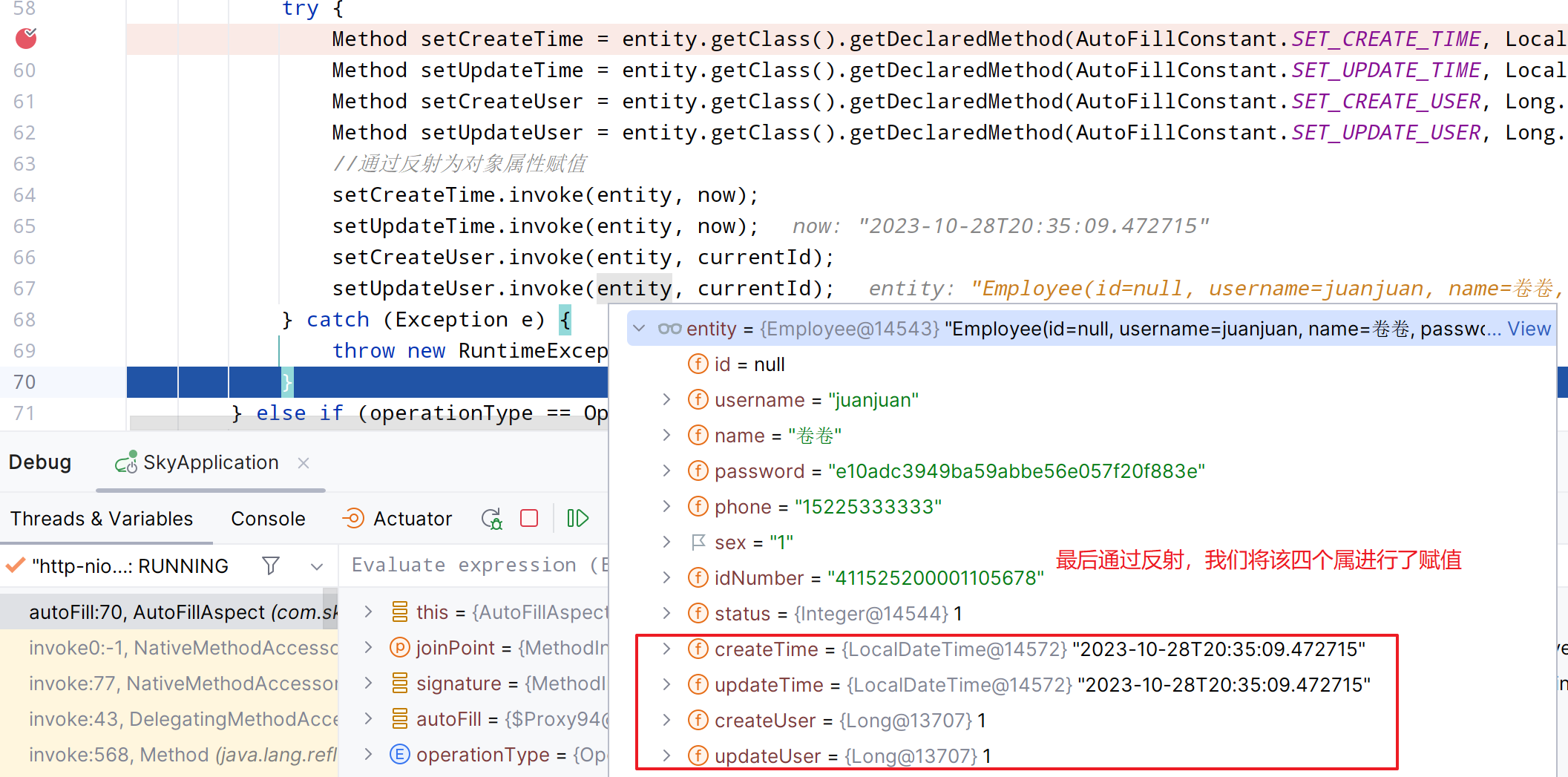
五、代码演示
/**
* 自定义注解,用于标识某个方法需要进行功能字段自动填充处理
* @Retention(RetentionPolicy.RUNTIME):定义注解的保留策略,
* 注解会在class字节码文件中存在,在运行时可以通过反射获取到
* @Target:指定被修饰的Annotation可以放置的位置(被修饰的目标)方法
*/
@Target(ElementType.METHOD)
@Retention(RetentionPolicy.RUNTIME)
public @interface AutoFill {
// 数据库操作类型:update、insert
OperationType value();
}
/**
* 数据库操作类型
*/
public enum OperationType {
/**
* 更新操作
*/
UPDATE,
/**
* 插入操作
*/
INSERT
}
自定义切面 AutoFillAspect
/**
* 自定义切面,实现公共字段自动填充处理逻辑
*/
@Aspect
@Component
@Slf4j
public class AutoFillAspect {
/**
* 切入点表达式
*/
@Pointcut("execution(* com.sky.mapper.*.*(..)) && @annotation(com.sky.annotation.AutoFill)")
public void autoFillPointCut() {
}
@Before("autoFillPointCut()")
public void autoFill(JoinPoint joinPoint) {
log.info("开始进行公共字段自动填充...");
//获取到当前被拦截的方法上的数据库操作类型
MethodSignature signature = (MethodSignature) joinPoint.getSignature();//方法前面对象
AutoFill autoFill = signature.getMethod().getAnnotation(AutoFill.class);//获得方法上的注解对象
OperationType operationType = autoFill.value();//获得数据库操作类型
//获取到当前被拦截的方法的参数--实体对象
Object[] args = joinPoint.getArgs();
if (args == null || args.length == 0) {
return;
}
Object entity = args[0];
//准备赋值的数据
Long currentId = BaseContext.getCurrentId();
LocalDateTime now = LocalDateTime.now();
//根据当前不同的操作类型,为对应的属性通过反射来赋值
if (operationType == OperationType.INSERT) {
//为4个公共字段赋值
try {
Method setCreateTime = entity.getClass().getDeclaredMethod(AutoFillConstant.SET_CREATE_TIME, LocalDateTime.class);
Method setUpdateTime = entity.getClass().getDeclaredMethod(AutoFillConstant.SET_UPDATE_TIME, LocalDateTime.class);
Method setCreateUser = entity.getClass().getDeclaredMethod(AutoFillConstant.SET_CREATE_USER, Long.class);
Method setUpdateUser = entity.getClass().getDeclaredMethod(AutoFillConstant.SET_UPDATE_USER, Long.class);
//通过反射为对象属性赋值
setCreateTime.invoke(entity, now);
setUpdateTime.invoke(entity, now);
setCreateUser.invoke(entity, currentId);
setUpdateUser.invoke(entity, currentId);
} catch (Exception e) {
throw new RuntimeException(e);
}
} else if (operationType == OperationType.UPDATE) {
try {
Method setUpdateTime = entity.getClass().getDeclaredMethod(AutoFillConstant.SET_UPDATE_TIME, LocalDateTime.class);
Method setUpdateUser = entity.getClass().getDeclaredMethod(AutoFillConstant.SET_UPDATE_USER, Long.class);
setUpdateTime.invoke(entity, now);
setUpdateUser.invoke(entity, currentId);
} catch (Exception e) {
throw new RuntimeException(e);
}
}
}
}
